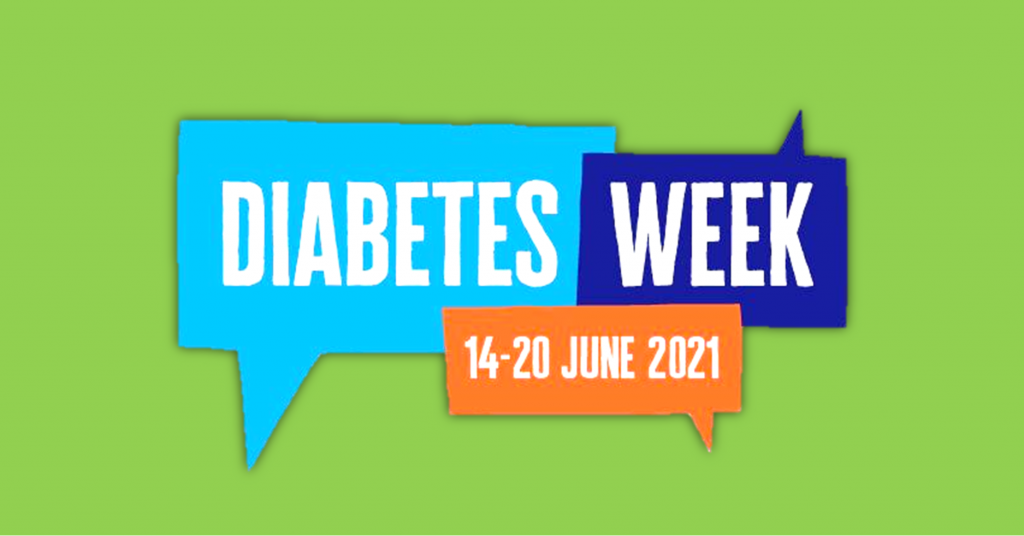18 June 2021
Diabetes Awareness Week takes place between 14 and 20 June 2021 and is used to create awareness of diabetes and to encourage people to share their experiences of living with diabetes.
In this article we share an account from Danielle Anthony who has been living with Type 1 Diabetes since 1998:
“Hi, my name is Danielle and I’ve been a Type 1 Diabetic since 1998 – this March made it 23 years I’ve been living with diabetes. It’s not so bad – I have my good days and my bad days but all-in-all I manage and if you didn’t know any better, I bet you wouldn’t have known I had it!
As a child it was hard at first trying to adjust to not eating chocolates and sweets or having sugary drinks like the other kids, but with the support of my family and friends and brilliant healthcare and advice from the John Radcliffe Hospital in Oxford, UK, we managed to cope and adapt. As a family we changed our lifestyle and ate more healthily and then in 2012, we moved to Oxford, UK, to access better healthcare. This was an advantage for me as it gave me exposure to others who were like me and it made things easier to accept. Don’t get me wrong, my health still isn’t perfect and I do struggle from time-to-time to get my blood glucose under control, but I do my utmost to ensure good health.
From a teenager, I’ve always tried to keep active and maintain this as I found there are benefits that come with keeping active. The struggle that I had to discover though was it wasn’t as simple as I thought as there are side effects that come with exercise, but this is something that I had to manage over time.
Then I had to venture into adulthood with Type 1 Diabetes which again was a struggle as the legal age for alcohol was now available to me, night clubbing and more. Now, this meant further monitoring and adjusting to lifestyles to ensure better health. At times, I didn’t want to feel in any way restricted and so I tried to live life to the fullest. I’ve had moments whereby I’ve had hypos* at home and in public. I remember travelling in to Oxford city on the bus and feeling myself drop in to a hypo and how I had to manage this on my own without anyone around me knowing what was happening. I’ve had a few severe hypos – some even during my sleep but again without the support around me I would have never survived it.
11 years ago, I was blessed with a beautiful baby boy who I am so proud of today. It was a struggle too during my pregnancy as I had to be vigilant with regards to my blood glucose and my exercising as the foetus of a Diabetic pregnant woman grows twice the size of a normal foetus, so I was pricking my finger more often, keeping as active as I could and eating doubly as healthy as I was before – I even had to try and fight the cravings that came with pregnancy! And at 38 weeks I was induced – as a full term pregnancy would result in a huge baby to deliver. I too had to ensure controlled blood glucose whilst having a young child as stress and tiredness also played a part in this.
As young as two years old I started to educate my son on how to recognise a hypo and what to do. This was the best thing I could have ever done as my son and I are always together; out walking, riding our bikes, swimming and just out for a drive. At least I feel confident now knowing that my son is able to assist me should I have a hypo.
23 years on, I cannot say that I have it all figured out as there is still lots to learn and as life takes us from one milestone through to the other there is still life to adapt too. I inject myself six times a day and prick my finger between six to eight times a day. This way I can have a better understanding of what is happening to my blood glucose and what adjustments are required to control it. I am on a regime called ‘Carb Counting’ whereby everything I eat must be calculated and accounted for using fast and slow acting insulin. Injecting has become part of my everyday life – just like brushing your teeth. To be honest I can’t see my life being any different since having Diabetes. I am happy to share my story and give a little advice too to anyone who would like to learn a bit more.”
* A low blood sugar level, also called hypoglycaemia or a ‘hypo’, is where the level of sugar (glucose) in your blood drops too low.
Symptoms of Diabetes
Below are the main symptoms of diabetes. Please make any appointment at the General Hospital on tel: 22500 as soon as possible if you experience any of these symptoms:
- Feeling very thirsty
- Urinating more frequently than usual, particularly at night
- Feeling very tired
- Weight loss and loss of muscle bulk
- Itching around the penis or vagina, or frequent episodes of thrush
- Cuts or wounds that heal slowly
- Blurred vision.
Notes to Editor
Diabetes is a lifelong condition that causes a person’s blood sugar level to become too high.
There are two main types of diabetes:
- Type 1 diabetes – where the body’s immune system attacks and destroys the cells that produce insulin
- Type 2 diabetes – where the body does not produce enough insulin, or the body’s cells do not react to insulin
#StHelena #AltogetherHealthier #DiabetesAwareness #DiabetesStories
SHG
17 June 2021
